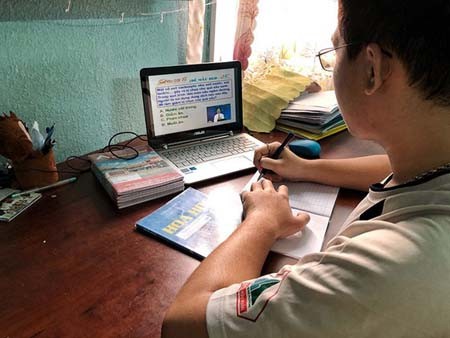
MoET affirmed that even after students coming back to school, online learning sessions will still be maintained in order for the academic year of 2019-2020 to end before July 15.
Therefore, it demanded that principals of all educational institutes monitor these professional activities closely and make sure they are safe.
Particularly, the principal of each school selects a suitable management system and teaching software, along with thorough training sessions regarding cyber security for the staff.
These principals have to regularly check the safety status and cooperate with state units in the local area to fight against cyber crimes and cyberbully. As soon as a suspicious case is discovered, schools must inform state offices for timely handling.
MoET also introduced detailed instructions for teachers – administrators of online classes. Accordingly, they need to be responsible for their lesson plans, learning materials, proper teaching methods, and sufficient information provision, guidance to their students.
Teachers are the ones to control learners’ accounts, participation, and learning quality via proper tests. When discovering cyber unsafety, these administrators have to timely inform their managers.
MoET asks students who participate in online classes to use their real names and under no circumstances to make improper comments about these classes. These participants are requested to be responsible for securing their own account, including usernames and passwords.
When finding strangers taking part in any online class, students have to inform their teacher who is in charge of that class or their parents to properly handle the situation.
MoET stressed the close collaboration between schools and family to ensure cyber security for online learning sessions. This means parents need to provide suitable learning space and equipment for students to join in online classes. Simultaneously, they need to monitor their children’s learning process and regulation observation.
MoET asked that Departments of Education and Training deliver directions or regulations for educational institutes under their control to ensure cyber security. from these papers, principals of schools will prepare a specific regulation set for their school, considering their learning conditions and educational facilities.
In addition, legal software must be used for the sake of education quality and learner safety during online learning sessions.
























